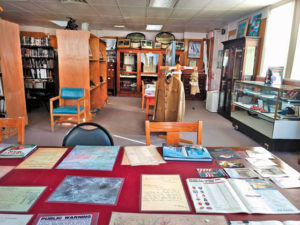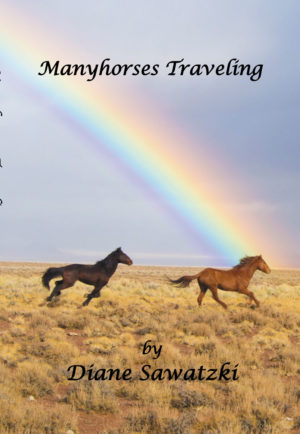By Martha Quillen
I never believed in the possibility of universal peace and understanding, but I went to college in the late 1960s when students clamored for peace, equality, black rights, women’s rights, grape workers’ rights … And I believed things would improve. Fifty years later it’s clear that raging, marching, rioting, and otherwise flouting authority may not be the best way to champion fairness and endow all people with liberty, equality and justice. But negotiation, compromise and cooperation aren’t working either.
So now what?
In January, local resident Monika Griesenbeck applied for the Salida City Clerk position. In a preliminary vote, the council approved her four to two, and several of the new members said nice things about her. I saw that as a clear indication that Salida’s new mayor and council were going to put rivalries behind them and serve everyone. And I thought that was great.
[InContentAdTwo]
But I was wrong. During the last six or eight years, Salida has fostered two opposing camps that tend to be bitterly divided. Last fall Griesenbeck and several associates who share advertising and ideas ran for city council and lost en masse. But two years earlier, the same contingent won en masse.
I was afraid our town was fated to yo-yo back and forth forever. Then for one whole day I thought, Salidans were finally going to work things out. But scores of angry opponents weighed in, demanding to know why Monika should get a political position after they defeated her, and Alisa Pappenfort was appointed city clerk.
I’d hoped Monika’s appointment could spur some healing, but I’ll admit it was a long shot. Monika and some of the council members are old rivals and probably would have had difficulty working together. But I feel for Monika and her supporters – who wrote lovely letters praising the council’s initial decision. They are doubtlessly disappointed and justifiably upset. This is the sort of thing that makes sectarian fissures widen, especially considering how hostile local political correspondence has gotten in recent years.
I was excited about the council’s acceptance of Monika’s application, but my view had nothing to do with Alisa. I’ve known Monika and Alisa for decades, and they’re both smart, tough, hard-working and reliable – and they have both been very good friends to me. I would have preferred either one of them over dozens of council members I remember.
But with that said? Neither of them would be my ideal choice, because they are far more one-sided than I want my representative to be. The Salida City Council elections have traditionally been non-partisan but in recent years they’ve been morphed by groups that work way too much like parties for my taste. Those groups weigh in on pretty much every issue, help fashion platforms, generate publicity, have common donors, are highly influenced by non-Salidans, and stay together to influence election after election (although the official formats and names come and go). And in a city Salida’s size, the winning side rules – even though most voters never belong to either group.
I think that’s unhealthy and undemocratic. But I also think Democrats, Republicans and Libertarians sacrifice democratic representation when they remain true to their parties’ narrow agendas and support issues and candidates that don’t reflect what the citizens want or need. As far as I’m concerned the GOP, Dems and Salida’s partisan alliances sow far too much discord and division and often serve their special interests at the expense of the people.
But my solution for every problem is to research it to death, which I’ll admit isn’t particularly effective either. On the other hand, there’s a wealth of information about how America’s economy, social media, leaders, psychology, workplaces, governments, educational systems and legislative decisions have run amok, along with some really fascinating material about America’s increasing polarization and the citizens’ growing contempt for one another.
Keith Payne’s Broken Ladder and Joan C. Williams’ White Working Class include sympathetic views on why Americans hurt and misunderstand one another so often, and they actually hold out hope for improvement. Matt Taibbi, on the other hand, has an angrier take on the matter. In Divide: American Injustice in the Age of the Wealth Gap, Taibbi talks about mass incarceration, illegal searches and the mistreatment of welfare mothers and immigrants in contrast to the dismissal of charges against those lying, thieving bank executives and regulators who got caught cheating America out of billions, and he concludes:
Unquestionably, however, something else is at work, something that cuts deeper into the American psyche. We have a profound hatred of the weak and the poor, and a corresponding groveling terror before the rich and successful, and we’re building a bureaucracy to match those feelings.
I hope Taibbi’s view is overly cynical. Yet I keep going back to it because Taibbi imbues the topic of how Americans mistreat one another with a disgust I believe it deserves.
Or is it we the people who deserve disgust? You and me? Do we keep blaming each other for not fixing things when we should be reaching out more and trying to organize better in order to improve our efforts?
And what is it with this national tendency of ours to blame the poor, anguished, starving, diseased, injured, bleeding, homeless, mentally deficient, unfairly incarcerated, desperate immigrants, orphans and refugees for costing us too much? Could anything be more self-centered than that?
Surely we can do better. In fact, it should be easy. All we have to do is find things that need our attention and give it. And that should be so much simpler than putting all of those people we complain about in their place.
And with that said? I keep thinking about Alisa. We used to work together, and sometimes hike and hang out together. She was the Mountain Mail’s production manager, and I worked in advertising. I remember one particular December evening in the 1980s. There had been a week-long search for a missing plane on the Collegiate Peaks and they found it buried in a snowbank on Christmas Eve with seriously afflicted but still breathing passengers aboard.
It must have been a slow news week, because the national press arrived like locusts. All afternoon, they crowded into the Mountain Mail offices to warm themselves up and use the phones. Everywhere you looked there was a crowd of reporters, standing around and talking, and we couldn’t get anything done.
The national press called that story the Christmas Eve Miracle, and it made it into all the television news shows and was pictured on the cover of most tabloids. My husband Ed, the news editor, was up at the rescue site. Publisher Baranczyk was big in the state press association then and had official business to attend to. An AP crew snagged our acting editor to wine her, dine her and pump her for information and she didn’t come back. Several women stayed overtime, but had to go home.
There were no cell phones then, so when people were out they were out. You couldn’t call and tell them to come back in if they weren’t home. By early evening the crowds had gone, and it was just Alisa and me, and a newspaper barely begun.
“So do you think we can do this?” I asked.
Alisa had a Southern accent thicker than overcooked grits then. “Hell, yes!” she hooted. It was her signature cry in those days when newspapers were cut and pasted together, staffs were small, Salida was poor, and equipment was always breaking down.
Alisa is far more subdued today, but I hope she still has some of that “Hell, yes!” spirit left. I hope all of us do, because I think it’s what makes you laugh when things are going so badly you want to cry.
Martha Quillen has lived in Salida for exactly forty years this month.



